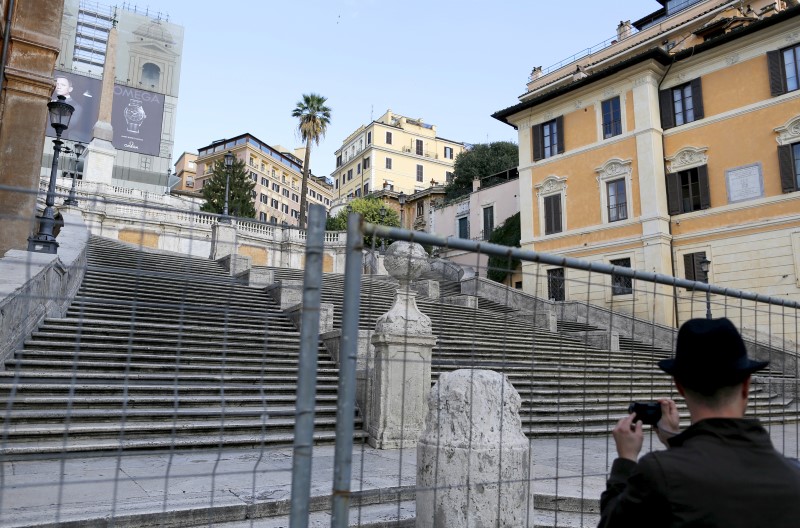By Giulia Segreti
MILAN (Reuters) - Italy's banks face the prospect of higher funding costs after DBRS put the country's last "A" credit rating on review citing uncertainty over a referendum scheduled for the autumn on a set of changes to the constitution.
A spokesperson said the unexpected move "irritated" the Economy Ministry of Pier Carlo Padoan, who like Prime Minister Matteo Renzi has said the government would resign if the referendum does not approve the new measures which are central to its agenda.
DBRS rates Italy "A (low)", making it the only one of the four major agencies whose rating the European Central Bank can use, to keep Italy in the top band for collateral requirements for its lending to banks.
That means a downgrade from DBRS would raise the cost for Italian banks of using government bonds as collateral for taking loans from the ECB.
Padoan's ministry said on Saturday it is considering whether to appeal against DBRS's move, which comes outside of its regular schedule of ratings reviews.
"Our opinion is that there is a violation of the rules and we are evaluating whether there are conditions to contest the decision to review the rating outside the regular pre-announced calendar," a ministry spokesperson said.
DBRS said in a statement it decided to review Italy's rating as "political uncertainty surrounding a forthcoming constitutional referendum and pressure on Italian banks...pose downside risks to the ratings."
It also referred to the fragile performance of Europe's third-largest economy and its high level of public debt-to-GDP.
DBRS' Fergus McCormick (NYSE:MKC) told Reuters that the different factors created "cumulative concerns" and that the referendum on a set was the biggest factor in the agency's decision.
McCormick said that although the government "has done a tremendous amount... political risk is a real factor."
Like all review processes, the agency is expected to take about three months to reach a decision.
"If a downgrade were to occur, an adjustment of more than one notch is not likely," DBRS said. But a one-notch downgrade would reduce Italy from A(low) to BBB (high), robbing of its last A grade.
Under the collateral eligibility rules for ECB's liquidity loans, a downgrade to BBB (high) would mean banks posting a fixed-coupon 10-year bond would be charged 13 percent of the value of the bonds instead of the 5 percent applied in the higher category.

If DBRS does bring its ratings into line with its peers, Italian banks, known to be the biggest supporters of the domestic bond market, could be driven away from buying their own sovereign debt, thereby pushing up the governments' borrowing costs as well.